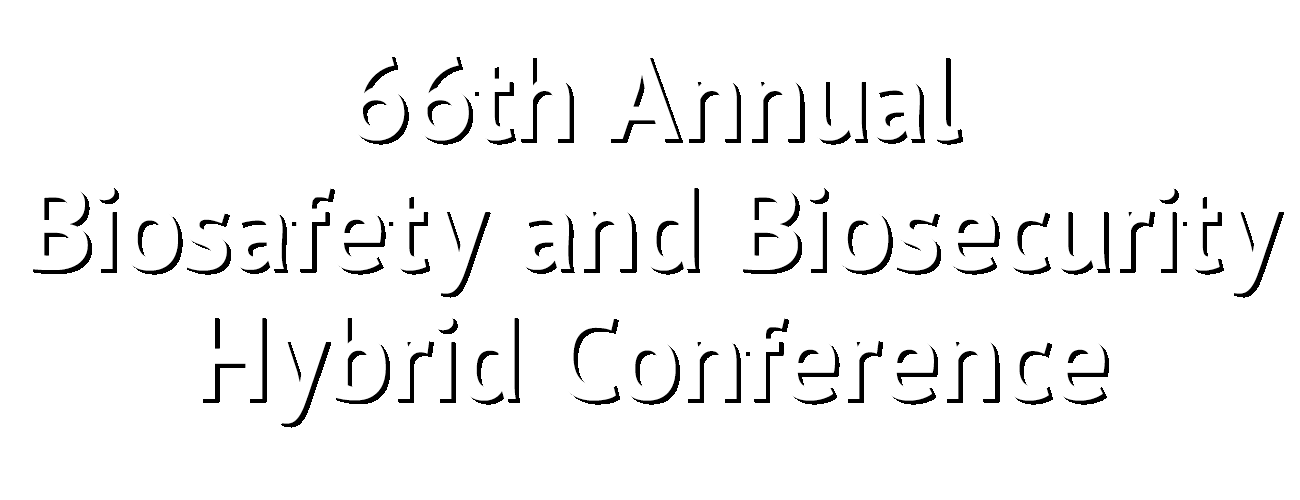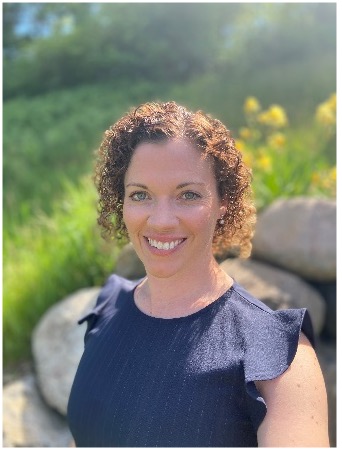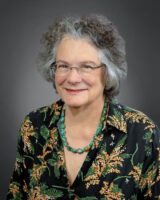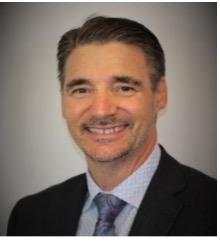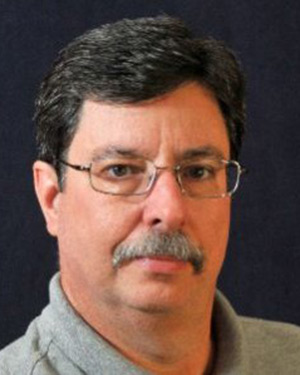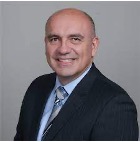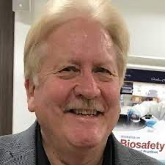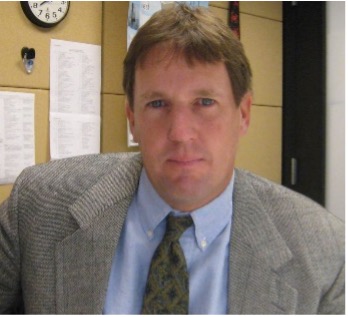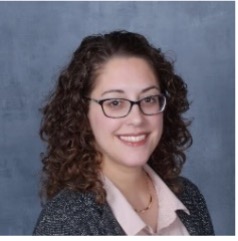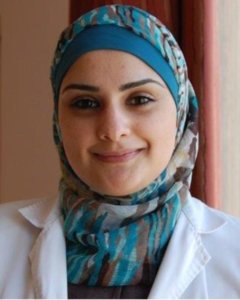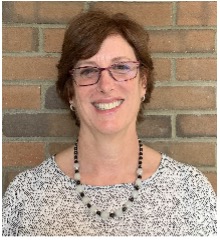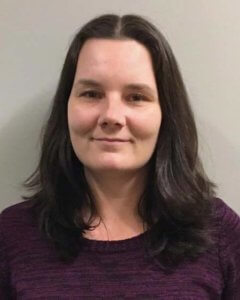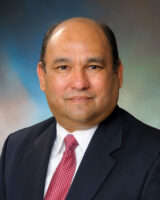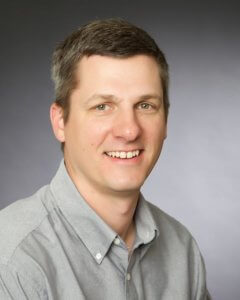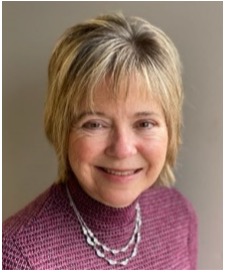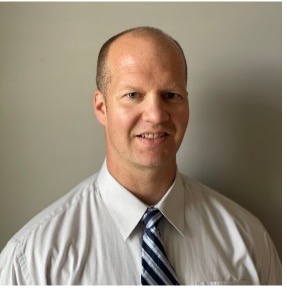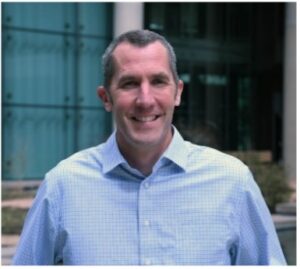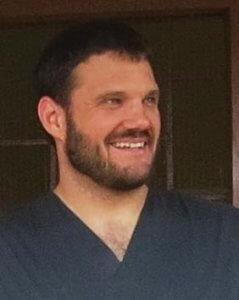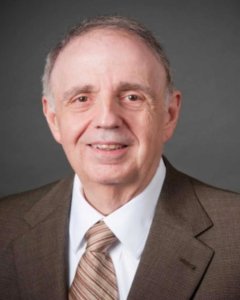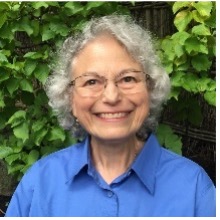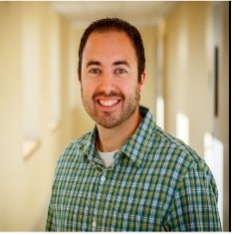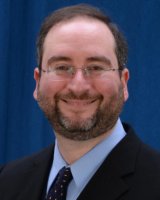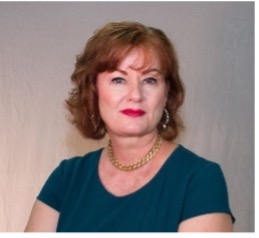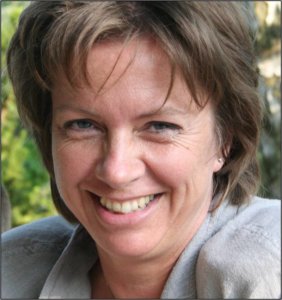Professional Development Courses
All times listed are in CENTRAL TIME ZONE
In-Person Courses
October 13-15, 2023
CHI Health Center, Omaha, Nebraska
Basic Level Courses – For those new to the profession or would like training in a particular topic.
Intermediate Level Courses – For those with basic knowledge or would like to learn more.
Advanced Level Courses – For those with experience or looking for a challenging course.
Friday, October 13, 2023, 8:00 AM – 5:00 PM, Room 205
1. BSL-3 Operations and Management
This course will review the important aspects of BSL-3 Operations and Management from two points of view; “hardware” (i.e., facilities & equipment issues) and “software” (i.e., administrative controls). It will cover various aspects you need to consider in order to operate a BSL-3 facility, such as training, maintenance support, occupational health, waste management, maintenance, performance verification, and emergency response. The instructors will encourage interaction and the exchange of experiences among the participants. Regulatory aspects from any specific country, or planning, design, or construction-related issues will not be covered.
Objectives:
- Describe the elements of BSL-3 Operations and Management (risk management, primary barriers, annual performance verification, emergency response, etc)
- Recognize institutional, management, and user responsibilities
- Summarize approaches to developing manuals, SOPs, and training
Suggested Background: Basic Risk Assessment and familiarity with BSL-3 Concepts
Target Audience: Safety Professionals, BSL-3 Managers, Containment Engineers, Lab and Scientific Directors
PDC Level: Basic
COURSE FACULTY
CONTACT HOURS
This course has been approved for 1.0 CM points toward RBP/CBSP recertification. ABSA International is approved as a provider of continuing education programs in the clinical laboratory sciences by the ASCLS P.A.C.E.® Program. This course is approved for 7.5 P.A.C.E.® contact hours.
Friday, October 13, 2023, 8:00 AM – 5:00 PM, Room 207
2. IATA Infectious Substance Shipping Certification
This course is appropriate for those who have some experience with infectious substance handling or shipping but may not have been certified within the past 3 years and those with little to no previous training. The course utilizes several facilitated learning activities. There will be group discussions and interactive exercises focused on the essential areas of infectious substance shipping. New IATA requirements for competency assessment will be administered short interactive assignments, and an online exam. Participants will mark, label, package, and complete documentation for infectious substance shipments (Category A, Category B, and Exempt Patient Specimens), and review applicable regulations with a focus on IATA. Additional US DOT differences will also be addressed. This course is appropriate for those responsible for packaging, marking, and labeling shipments of all categories of infectious substances, dry ice, and liquid nitrogen. Participants have both an online exam (score at least 80%) and practical exercises to complete to demonstrate competency. Successful completion of the course will qualify participants for IATA/DOT certification.
Objectives:
- Review and restate shipping regulations for both air and ground with a particular focus on 49 CFR US DOT and IATA air regulations
- Conduct a risk assessment and be able to properly classify and identify infectious substances for transport purposes
- Package, mark, label, and prepare documentation for shipments of infectious substances to meet regulatory requirements for air and ground shipments
Suggested Background: None
Target Audience: All Safety Professionals, New Biosafety Professionals
PDC Level: Basic
COURSE FACULTY
CONTACT HOURS
This course has been approved for 1.0 CM points toward RBP/CBSP recertification. ABSA International is approved as a provider of continuing education programs in the clinical laboratory sciences by the ASCLS P.A.C.E.® Program. This course is approved for 7.5 P.A.C.E.® contact hours.
Friday, October 13, 2023, 8:00 AM – 5:00 PM, Room 206
3. Animal Research for Biosafety Professionals – An Introduction
Animal Research has contributed to major scientific advances in biomedical, veterinary, and environmental sciences and in public health. However, these efforts often pose significant risks to the health and safety of research and facility staff due to the wide range of species, complex experimental procedures and equipment, and facility hazards that are involved. Balancing optimal worker safety and animal welfare with research objectives yields the best results but requires a solid understanding of how animal programs are managed and an ability to identify and mitigate inherent risks. This course provides a thorough introduction to routine hazards commonly encountered in animal programs that utilize rodents, small animals, nonhuman primates, aquatics, and agricultural species, with a primary focus on identifying and managing biological, chemical, radiological, and physical hazards. The instructors are experienced laboratory animal veterinarians who are actively involved in the management, oversight, and evaluation of animal care and use programs. Topics include assessment and management of animal program hazards; regulations, guidelines, and quality standards that primarily apply to animal research in the U.S.; duties and responsibilities of key program personnel; local oversight systems; best practices that enhance the quality of animal care; and strategies for biosafety professionals to develop and maintain effective partnerships with program staff and institutional animal care and use committee members. Opportunities will be provided to apply new knowledge and skills through group interactive activities and problem-solving sessions.
Objectives:
- Review basic hazard identification and risk assessment techniques relevant to research involving live animals
- Develop an understanding of governing regulations and guidelines that pertain to the care and use of research animals
- Recognize the difference between “regulatory requirements” and “best practices” related to performance-based standards
- Identify successful strategies for working effectively with animal program personnel on common research safety issues
Suggested Background: None
Target Audience: New Biosafety Professionals, All Safety Professionals, Laboratory Workers, New IACUC and Safety Committee Members
PDC Level: Basic
COURSE FACULTY
CONTACT HOURS
This course has been approved for 1.0 CM points toward RBP/CBSP recertification. ABSA International is approved as a provider of continuing education programs in the clinical laboratory sciences by the ASCLS P.A.C.E.® Program. This course is approved for 7.5 P.A.C.E.® contact hours.
Saturday, October 14, 2023, 8:00 AM – 5:00 PM, Room 206
4. Facilities Fundamentals for Biosafety Professionals
This course is aimed at strengthening safety at biocontainment facilities by helping biosafety professionals understand how facility operations support overall biocontainment operations. Through a mixture of presentations from experts in the field and interactive exercises, participants will reinforce their knowledge of discrete facility system function and ways individual systems complement each other holistically in operating biocontainment facilities. Participants will gain practical knowledge of related facility issues (e.g., facility design, maintenance, performance verification, and waste management) and their roles in them. The target audience for the course is biosafety professionals who come with backgrounds other than facilities, and it is open to both newcomers and seasoned veterans in biosafety.
Objectives:
- Clarify the practical knowledge gained of facility issues (e.g., design, maintenance, and performance verification) and their roles in them
- Develop an understanding of specific infrastructure, equipment, and systems related to the operation of a biocontainment facility
- Interpret how specific facility systems operate and support biocontainment
Suggested Background: Fundamentals of Biosafety, Risk Assessment, Principles and Practices of Biosafety
Target Audience: All Safety Professionals, All Biosafety Professionals, Facilities Personnel
PDC Level: Intermediate
COURSE FACULTY
CONTACT HOURS
This course has been approved for 1.0 CM points toward RBP/CBSP recertification. ABSA International is approved as a provider of continuing education programs in the clinical laboratory sciences by the ASCLS P.A.C.E.® Program. This course is approved for 7.5 P.A.C.E.® contact hours.
Saturday, October 14, 2023, 8:00 AM – 5:00 PM
5. Facility Commissioning and Recommissioning for BSL-3 Laboratory
By understanding the commissioning and recommissioning processes, it can assist the biosafety professional in start-up or maintaining their laboratory operations to perform the program. Laboratory commissioning, identified in containment guidance documents, is a quality assurance process for the effective functioning of biocontainment laboratories. The biosafety officer and other decision makers benefit by having a basic understanding of the commissioning and recommissioning processes and resulting documentation. This course will review the phases of the new facility commissioning process and similar process for recommissioning. This knowledge base allows the biosafety professional to recognize how commissioning assists in providing and documenting a properly operating facility. A review of the secondary containment features of the BSL-3 laboratory will be disucssed and note specific issues typically observed. There will be a focus on two issues, the reversal of directional airflow and sealing of surfaces and penetrations. Participants will consider methods to identify the issues and present some specific mitigations of these issues; can actively participate in the commissioning/recommissioning processes and understand the methodology, the tools, results, and their interpretation; will know their facility operates correctly, its limitations, and the risk when it does not. This knowledge allows the biosafety professional to check or back check the containment spaces’ performance and use this knowledge to perform daily inspections for maintenance or replacement and control risk to the lowest level. The biosafety professional can identify required features in a new laboratory or review an existing lab with a better understanding of typical issues to assure safe reliable operations.
Objectives:
- Develop an understanding of the overall commissioning and recommissioning processes for containment labs
- Articulate the engineering controls required and effectively participate in the processes
- Identify typical issues observed during commissioning/recommissioning of the laboratory secondary containment barriers and the options for practical solutions to those issues
- Demonstrate a knowledge base and provide documentation to better perform daily inspections to reduce risk for safe and reliable laboratory operations
Suggested Background: None
Target Audience: All Safety Professionals, Laboratory Workers, Operations and Maintenance Personnel
PDC Level: Intermediate
COURSE FACULTY
CONTACT HOURS
This course has been approved for 1.0 CM points toward RBP/CBSP recertification. ABSA International is approved as a provider of continuing education programs in the clinical laboratory sciences by the ASCLS P.A.C.E.® Program. This course is approved for 7.5 P.A.C.E.® contact hours.
Saturday, October 14, 2023, 8:00 AM – 5:00 PM, Room 207
6. Engineering for the Biosafety Professional Part II
Proactive biosafety professionals need to be involved and knowledgeable in the operation, maintenance, and certification of their containment facilities and building systems. Frequently, the biosafety professional is called upon to participate in the planning, design, and validation of a new biocontainment laboratory or renovation of an existing facility. This course provides basic engineering principles that are useful in the planning, design, construction, maintenance, and operation of a BSL-3 or high-containment facility. The principles are expanded to BSL-4 or maximum containment facilities for clarity between BSL-3 and BSL-4 requirements. To participate in these activities, the biosafety professional will need a foundation of engineering fundamentals, skills to ask questions in engineering terms, and the confidence to question the answers. Topics covered include interpreting architectural and engineering drawings including plan views, personnel and waste flows, scaling, calculating air changes, and an in-depth review of HVAC drawings, airflow reversal mitigation, and engineering redundancies. There will be a review of commissioning and certification processes, including elements of ventilation assessment. Individual and group exercises will be conducted for practical application of principles presented. Building on “Engineering for the Biosafety Professional – Part I,” this course will integrate examples that show cause and effect in real-life scenarios.
Objectives:
- Discuss engineering principles
- Apply engineering assessment tools for architectural and engineering drawings
- Evaluate engineering solutions
Suggested Background: Fundamentals of Biosafety, Engineering for the Biosafety Profession Part 1 (preferred)
Target Audience: All Safety Professionals, New Biosafety Professionals
PDC Level: Intermediate
COURSE FACULTY
CONTACT HOURS
This course has been approved for 1.0 CM points toward RBP/CBSP recertification. ABSA International is approved as a provider of continuing education programs in the clinical laboratory sciences by the ASCLS P.A.C.E.® Program. This course is approved for 7.5 P.A.C.E.® contact hours.
Saturday, October 14, 2023, 8:00 AM – 5:00 PM, Room 208
7. Animal Research for Biosafety Professionals – Advanced
This course builds on general principles presented in the introductory class (Animal Research for Biosafety Professionals—An Introduction) and focuses on complex animal and research-based scenarios that present unique and challenging safety concerns. Topics include viral vectors; patient-derived xenografts (PDX) and humanized animals; nanoparticles; cytotoxic drugs; arthropod containment within a vivarium; aquatic animal models; wildlife species; biosecurity challenges; facility design; animal imaging; high-containment; animal program disaster planning; and management of chemical and biological wastes (e.g., bedding and carcasses). Proven strategies for optimizing safety program outcomes through constructive partnerships between various disciplines, including safety professionals and key animal program representatives will be presented. The course will be highly interactive and focus on problem-based learning through scenarios and interactive exercises that illustrate “real world” examples in research facilities, diagnostic laboratories, and teaching programs that use animals. Participants will practice developing strategies to identify potential hazards, assess the magnitude and extent of induced risks, learn about case-specific variables that can influence management options, and implement effective and cost-efficient control measures that protect the safety of workers, animals, and the environment.
Objectives:
- Review hazard identification and risk assessment strategies as they pertain to a variety of animal models, including aquatics and wildlife, and complex animal facility environments
- Apply effective control strategies for unique animal hazards through proactive experimental design and facility management procedures
- Identify ways safety professionals can partner with animal program personnel to address new and emerging safety issues associated with animal-based research
Suggested Background: Basic knowledge of, and experience with, identifying and managing common hazards found in animal research (Animal Research for Biosafety Professionals – An Introduction)
Target Audience: Experienced Biosafety Professionals, All Safety Professionals, Laboratory Workers, Experienced IACUC and Safety Committee Members
PDC Level: Advanced
COURSE FACULTY
CONTACT HOURS
This course has been approved for 1.0 CM points toward RBP/CBSP recertification. ABSA International is approved as a provider of continuing education programs in the clinical laboratory sciences by the ASCLS P.A.C.E.® Program. This course is approved for 7.5 P.A.C.E.® contact hours.
Saturday, October 14, 2023, 8:00 AM – 12:00 PM, Room 209
8. Practical Aerobiology Concepts
This course will provide biosafety professionals with an understanding of tools used to generate and sample bioaerosols. Course discussion will cover how bioaerosols are generated, common experimental aerosol generators, and factors that control number of organisms in a single particle. Subsequent material will cover sampling conditions and samplers that are appropriate to collect bioaerosols. The advantages and disadvantages of different bioaerosol generators and samplers will be discussed throughout. Practical application of bioaerosol generators and samplers will be covered both in didactic lecture and small-group activities.
Objectives:
- Describe how bioaerosols are experimentally generated through different aerosol generators
- Identify the factor(s) that control number of organisms contained in a single particle
- Summarize the advantages and disadvantages of different bioaerosol samplers
Suggested Background: Fundamentals of Biosafety, Principles and Practices of Biosafety
Target Audience: All Safety Professionals, New Biosafety Professionals
PDC Level: Intermediate
COURSE FACULTY
CONTACT HOURS
This course has been approved for 0.5 CM points toward RBP/CBSP recertification. ABSA International is approved as a provider of continuing education programs in the clinical laboratory sciences by the ASCLS P.A.C.E.® Program. This course is approved for 3.5 P.A.C.E.® contact hours.
Saturday, October 14, 2023, 8:00 AM – 12:00 PM, Room 205
9. Intersection Between Biosafety and Infection Control: An Introduction to Infection Control and Biosafety in Clinical Spaces
This course is meant for the biosafety professional who would like to learn more about application of biosafety principles in the clinical environment and partnering with Infection Control Departments in health systems. This is increasingly important as clinical trials using biological therapeutics, such as human gene transfer (HGT), require safety professionals to develop investigational product handling, preparation, and administration protocols that align with current clinical safety practices and environments. The goals of this course are to introduce different clinical environments, specific biosafety considerations for each space, hospital regulatory requirements that influence safety protocols, and how to collaborate with hospital infection control professionals to operationalize safety protocols in a way that’s meaningful to hospital staff.
Objectives:
- Describe inpatient, procedural and outpatient clinical environments and how this affects implementation of biosafety practices
- Restate the similarities and differences between biosafety levels, isolation precautions, and standard precautions
- Summarize how NIH and BMBL guidelines relate to hospital regulatory and accreditation requirements when creating protocols for HGT clinical trials
Suggested Background: Principles and Practices of Biosafety
Target Audience: All Safety Professionals, All Biosafety Professionals
PDC Level: Intermediate
COURSE FACULTY
CONTACT HOURS
This course has been approved for 0.5 CM points toward RBP/CBSP recertification. ABSA International is approved as a provider of continuing education programs in the clinical laboratory sciences by the ASCLS P.A.C.E.® Program. This course is approved for 3.5 P.A.C.E.® contact hours.
Saturday, October 14, 2023, 1:00 PM – 5:00 PM
11. Respiratory Protection for Biosafety Professionals
This course will provide an overview of respiratory protection personal protection equipment (PPE), including selection considerations for biological and chemical hazards. A deeper dive into key hazards relevant to biosafety professionals and their respiratory protection considerations will follow. While mostly based on U.S. OSHA Respiratory Protection Program requirements, much of theinformation presented will be applicable internationally.
Objectives:
- Describe the basic process for hazard and exposure assessment necessary for selecting appropriate respiratory protection
- Identify the types and styles of respiratory protection equipment, in addition to U.S. OSHA requirements for their use
- Summarize the process of respirator selection and program implementation in their workplace for key hazards
Suggested Background: None
Target Audience: All Biosafety Professionals, All Safety Professionals
PDC Level: Intermediate
COURSE FACULTY
CONTACT HOURS
This course has been approved for 0.5 CM points toward RBP/CBSP recertification. ABSA International is approved as a provider of continuing education programs in the clinical laboratory sciences by the ASCLS P.A.C.E.® Program. This course is approved for 3.5 P.A.C.E.® contact hours.
Sunday, October 15, 2023, 8:00 AM – 5:00 PM, Room 208
12. Introduction to the ISO35001: Biorisk Management for Laboratories and Other Related Organizations
As there is a demand for stringent and robust system for handling risks of biological materials internationally; ISO 35001 has been published as the first international standard that defines the requirements of the biorisk management system for laboratories or any other organization that works with biological agents. ISO 35001 complements existing international standards for laboratories, and is appropriate to the nature and scale of any laboratory or organization that works with, stores, transports, and/or disposes of hazardous biological materials. The commitment to follow the ISO35001 will enable institutions to effectively identify, assess, control, and monitor the laboratory biosafety and biosecurity risks associated with hazardous biological materials, using the concept of continual improvement through the PDCA (Plan-Do-Check-Act) principle. Institutions can use the standard as a framework for improving overall biorisk program performance, raising awareness, improving international collaboration and communication, fulfilling legal requirements and supporting lab certification.The course will start with an introduction to the ISO35001, brief introduction to the major sections including leadership, planning, support, operation, performance evaluation and improvement, followed by a discussion about how to initiate implementation to improve biorisk management system. Through facilitated discussions and activities, participants will leave the course with a plan of action to perform a gap analysis of their current management system with the new ISO standard and begin a stepwise implementation process to improve existing systems and qualify for eventual ISO35001 certification.
Objectives:
- Distinguish the ISO35001 as an international standard for laboratory biorisk management requirements
- Recognize the main sections of the ISO35001
- Explain how to initiate the use of the ISO35001 to improve the overall laboratory biorisk management system
- Plan a stepwise process to analyze and improve existing biorisk management systems to qualify for eventual ISO35001 certification
Suggested Background: Fundamentals of Biosafety
Target Audience: All Safety Professionals, New Biosafety Professionals, International Biosafety Professionals
PDC Level: Basic
COURSE FACULTY
CONTACT HOURS
This course has been approved for 1.0 CM points toward RBP/CBSP recertification. ABSA International is approved as a provider of continuing education programs in the clinical laboratory sciences by the ASCLS P.A.C.E.® Program. This course is approved for 7.5 P.A.C.E.® contact hours.
Sunday, October 15, 2023, 8:00 AM – 5:00 PM, Room 206
13. Pharmaceutical Biosafety Officer Training
The course is intended for Pharma BSOs and can be a complimentary course to Principles and Practices of Biosafety (PPB) offered by ABSA. The instructors will cover key topics such as the Biorisk Management Framework, the ISO 35001 Standard that features a high-level review of the new ISO Standard and implementation examples, and the Regulatory Framework including key regulations in U.S. and non-U.S. regulations and key differences between regions. Examples from Applied Biosafety will lead to a discussion of new technology platforms in the industry to include CRISPR, alpha virus, viral vector gene therapy, human cell lines, lab acquired infections (e.g., N. meningitis, rabies large scale infection, Brucella large-scale), improper inactivation scenarios, animal blood and tissue samples, human neurological tissue concerns, environmental release of biological agents (biological agent release scenario- how handle). This course will be interactive with a variety of group exercises where participants will review P&IDs, identify issues, propose recommendations for what would be acceptable vs. not. Also, look at HVAC, placement of equipment, types of equipment needed, room pressurization, workflow, decontamination (autoclave, HEPA, kill tanks, chemical treatment), permitting, and risk assessment completion. The course will conclude with a roundtable discussion, presentation of the group exercises, and Q&A.
Objectives:
- Identify the global biorisk management regulatory framework applicable to pharmaceutical companies
- Restate how to integrate biosafety principles into engineering design projects
- Summarize how to conduct a biorisk assessment and expectations for biosafety committee approval
Suggested Background: Fundamentals of Biosafety, Risk Assessment, Micro/Molecular Biology 101, Principles and Practices of Biosafety
Target Audience: All Biosafety Professionals
PDC Level: Intermediate
COURSE FACULTY
CONTACT HOURS
This course has been approved for 1.0 CM points toward RBP/CBSP recertification. ABSA International is approved as a provider of continuing education programs in the clinical laboratory sciences by the ASCLS P.A.C.E.® Program. This course is approved for 7.5 P.A.C.E.® contact hours.
Sunday, October 15, 2023, 8:00 AM – 5:00 PM, Room 207
14. Advanced BSL-3 Facility Operations
This advanced course is a follow up to the BSL-3 Facility Operations and Management and will focus on detailed aspects of biocontainment operations of BSL-3, ABSL-3 and enhanced BSL-3 laboratories. It will cover developing risk assessments for biocontainment equipment; facility operations and maintenance SOP’s; maintenance personnel training requirements; solid and liquid waste decontamination equipment, procedures, validations and cycle developments; area decontamination methodologies, procedures and validations; filtration systems and their validation and testing process; ventilation control methodologies and ventilation equipment configuration; facility testing during normal and failure conditions of the ventilation system; test documentation and record keeping.
Objectives:
- Explain the facility verification process in detail, including recommended test methodologies
- Identify the methodologies for decontamination of areas, equipment, filters and waste
- Describe the elements of biocontainment equipment risk assessments
Suggested Background: Fundamentals of Biosafety
Target Audience: All Safety Professionals, Experienced Biosafety Professionals
PDC Level: Advanced
COURSE FACULTY
CONTACT HOURS
This course has been approved for 1.0 CM points toward RBP/CBSP recertification. ABSA International is approved as a provider of continuing education programs in the clinical laboratory sciences by the ASCLS P.A.C.E.® Program. This course is approved for 7.5 P.A.C.E.® contact hours.
Sunday, October 15, 2023, 8:00 AM – 5:00 PM, Room 210
15. Advanced Risk Assessment
In this advanced and interactive course, participants will evaluate a variety of challenging scenarios based on actual research protocol submissions and real-world events from multiple risk perspectives. Participants will work in teams to conduct risk assessments on a diverse selection of scenarios that will include multiple systems used in research as a research project progresses from discovery to cell culture, to small animal models using recombinant materials, and human clinical trials. Risk assessments will focus on the likelihood of exposure and the severity of consequences from exposure to the multitude of hazards encountered in increasingly complex research as well as the surprises that may come across the biosafety officer’s desk. Participants will be challenged to consider additional risks aside from infection and how best to mitigate them. Participants should have a thorough understanding of pathogenic microorganisms, rDNA principles, other infectious substances and the link between biosafety, risk assessment, and risk mitigation for this advanced course. There is an emphasis on the interactive nature of the risk assessment process and differing views of risk tolerance will be considered; participants should be prepared to participate in discussions and bring interesting or difficult examples of interest to them to discuss with the class.
Objectives:
- Prioritize risks based on the likelihood and consequences of an occurrence
- Identify risks requiring mitigation and mitigation strategies to minimize the unacceptable risks
- Identify institutional and external partners to help implement mitigation strategies
- Evaluate mitigation strategies for effectiveness, adjust strategies as warranted
Suggested Background: Fundamentals of Biosafety, Microbiology, and Molecular Biology; Basic Risk Assessment, Principles & Practices of Biosafety
Target Audience: Experienced Biosafety Professionals, Laboratory Workers
PDC Level: Advanced
COURSE FACULTY
CONTACT HOURS
This course has been approved for 1.0 CM points toward RBP/CBSP recertification. ABSA International is approved as a provider of continuing education programs in the clinical laboratory sciences by the ASCLS P.A.C.E.® Program. This course is approved for 7.5 P.A.C.E.® contact hours.
Sunday, October 15, 2023, 8:00 AM – 12:00 PM, Room 209
16. Capturing and Displaying the Value of Your Biosafety Program
A recurrent challenge confronting biosafety professionals is the ability to garner necessary program resources to achieve desired goals and objectives. The basis for this difficulty is that, on a good day in the world of biosafety, “nothing bad happens”. The underlying challenge is that upper management may not fully appreciate or understand all of the effort and resources that went into making “nothing bad happen”. Biosafety professionals in particular experience difficulty in this regard because many in the profession have received intensive training in the biological sciences, but little or no training in the area of program management. This course focuses on some key management approaches and techniques that can be used within biosafety programs to help improve stakeholder understanding, which in turn can result in the provision of necessary programmatic resources. Numerous real-world examples of successful applications of the techniques presented will be displayed for review and discussion. Ample time will be provided throughout the course for participant interaction and inquiries.
Objectives:
- Identify various biosafety programmatic measures and metrics that should be captured and communicated
- Describe how biosafety programs can assist with other basic safety program needs to help avoid the notion of program duplication of efforts and to improve safety and client satisfaction levels
- Paraphrase techniques used for displaying biosafety data in ways that others can readily understand and appreciate
Suggested Background: None
Target Audience: All Biosafety Professionals, All Safety Professionals
PDC Level: Basic
COURSE FACULTY
CONTACT HOURS
This course has been approved for 0.5 CM points toward RBP/CBSP recertification. ABSA International is approved as a provider of continuing education programs in the clinical laboratory sciences by the ASCLS P.A.C.E.® Program. This course is approved for 3.5 P.A.C.E.® contact hours.
Sunday, October 15, 2023, 8:00 AM – 12:00 PM, Room 213
17. Disinfection and Sterilization: Evaluation and Validation Concepts
This course will provide biosafety professionals with an understanding of the quality assurance and evaluation tests used in sterilization and disinfection. Understanding of these tests will directly benefit the selection of quality assurance tests when validating sterilization and disinfection processes and the selection of appropriate disinfectants. Factors responsible for heat resistance of endospores and D values applied to example biological indicators will be discussed. Further material will describe factors that affect disinfectant potency. Disinfectant product labels, disinfectant tests, and neutralizers will be discussed in didactic lecture and applied in small group activities.
Objectives:
- Summarize the factors affecting disinfectant potency
- Restate disinfectant evaluation testing
- Connect technical data with disinfectant product label claims
Suggested Background: Fundamentals of Biosafety, Principles and Practices of Biosafety
Target Audience: All Safety Professionals, Laboratory Workers, New Biosafety Professionals
PDC Level: Intermediate
COURSE FACULTY
CONTACT HOURS
This course has been approved for 0.5 CM points toward RBP/CBSP recertification. ABSA International is approved as a provider of continuing education programs in the clinical laboratory sciences by the ASCLS P.A.C.E.® Program. This course is approved for 3.5 P.A.C.E.® contact hours.
Sunday, October 15, 2023, 1:00 PM – 5:00 PM, Room 209
18. Writing Effective Standard Operating Procedures
This course will offer participants an understanding of key principles for writing effective standard operating procedures (SOPs). An introduction to the importance of SOPs in achieving desirable and consistent outcomes and issues that must be considered in the SOP writing process will be presented. Examples will include some of the most common human behavior considerations such as compliance, behavioral evolution, complaisance, and strategies to address behavioral concerns that may arise. Participants will engage in guided discussions about the benefits of an effective SOP writing process and the most common mistakes made by the authors of SOPs. The course will take participants through the process of writing feasible standard operating procedures (SOPs) including SOP evaluation and validation. Through group interactions, participants will develop examples of SOPs to illustrate effective writing concepts, present their SOPs to the class, and evaluate each other’s SOPs for feasibility. Instructors will guide participants through the process by providing critical feedback on the SOP writing process as they progress. The goal of this course is to increase students’ awareness of issues that arise when writing standard operating procedures and how these issues affect SOP compliance. Furthermore, the course will provide examples of well-written SOPs that contribute to overall SOP compliance at an institution. The course is intended for those who want to be able to lead or aid in the creation of feasible and effective SOPs in order to enhance both biosafety and biosecurity at their institution.
Objectives:
- Summarize the range of issues that must be considered when writing effective standard operating procedures (SOPs), including human behavior
- Develop strategies for writing effective SOPs
- Illustrate how good standard operating procedures (SOPs) work to enhance both biosafety and biosecurity
- Recognize the value of “feasible” and therefore effective standard operating procedure (SOP) in promoting biosafety and biosecurity best practices
Suggested Background: None
Target Audience: All Safety Professionals, New Biosafety Professionals, Laboratory Workers
PDC Level: Basic
COURSE FACULTY
CONTACT HOURS
This course has been approved for 0.5 CM points toward RBP/CBSP recertification. ABSA International is approved as a provider of continuing education programs in the clinical laboratory sciences by the ASCLS P.A.C.E.® Program. This course is approved for 3.5 P.A.C.E.® contact hours.
Sunday, October 15, 2023, 1:00 PM – 5:00 PM, Room 213
19. Using the Past to Prevent Future Laboratory-Acquired Infections
Preventing laboratory-acquired infections (LAIs) is a challenge for laboratory managers and biosafety professionals, especially when dealing with an emerging pathogen. It is extremely important to quickly determine if there has been an exposure, what steps need to happen next, including any prophylaxis, root cause analysis, gaps in the biosafety plan, and additional mitigation measures that need to be implemented. This interactive course will demonstrate how real-life scenarios from the ABSA LAI Database can be used as a learning and training tool to help prevent future incidents and LAIs. This course will provide an overview of how to search the LAI database and a review of two published case studies. Participants will be shown how to use an exposure assessment tool and clinical laboratory biological exposure monitoring guide (both provided) to demonstrate that the database scenarios had resulted in an exposure. Participants will be shown how to perform a root cause analysis, apply this information to find the biosafety plan gaps, and determine what additional steps are needed to mitigate the risks. In a group discussion, participants will receive new scenarios from the database; utilize the exposure assessment tool to complete the process that was illustrated from exposure determination to performing the root cause analysis, identifying the gaps, and mitigation steps to help prevent this from happening again. Additionaly, participants will learn how to use published LAI data and these tools to determine how to safely work with an emerging pathogen.
Objectives:
- Describe how the ABSA LAI database can be used for biosafety training and determining how to safely work with emerging pathogens
- Utilize an exposure assessment tool to assess real-life laboratory incidents for potential exposures and to help guide prophylaxis if indicated
- Analyze actual laboratory incidents to determine the root cause and what steps are necessary to mitigate future incidents
Suggested Background: Fundamentals of Biosafety, Risk Assessment, Micro/Molecular Biology 101, Principles and Practices of Biosafety
Target Audience All Safety Professionals, Laboratory Workers
PDC Level: Intermediate
COURSE FACULTY
CONTACT HOURS
This course has been approved for 0.5 CM points toward RBP/CBSP recertification. ABSA International is approved as a provider of continuing education programs in the clinical laboratory sciences by the ASCLS P.A.C.E.® Program. This course is approved for 3.5 P.A.C.E.® contact hours.
Virtual Courses
August 29 – November 13
These courses are part of the Professional Development Program for the 66th Annual Biosafety and Biosecurity Hybrid Conference. It is not necessary to be a conference participant to register for these courses.
Tuesday, August 29, 2023 from 11:30 AM – 4:00 PM CDT
1V. Introduction to Biosafety in the Clinical Setting
The clinical setting poses a different environment than research laboratories. This course provides foundations for applying biosafety concepts in the clinical setting. Topics covered include common issues and lessons learned pertaining to clinical facilities including pharmacies, laboratories, clinics, infusion areas, ORs, and waste disposal facilities; PPE, disinfection, risk assessments, and safety practices in the clinical setting; speaking biosafety to doctors, nursing staff, pharmacy staff, infection prevention and control, diagnostic microbiology lab personnel, and hospital EHS staff; applying NIH Guidelines and the BMBL to the clinical setting; gaps in oversight of research safety for clinical trials, and risk assessments for unconventional or highly specialized delivery mechanisms for biologics. The course will conclude with a focus on clinical trials including the role of an IRB and how it can overlap with an IBC; the process for investigational products to obtain FDA approval to be deemed as safe and effective therapeutics; and the evolving regulatory environment in the U.S. for biologics such as vaccines, regenerative medicines, and gene therapy. The course is designed to be highly interactive with discussions, surveys, and team exercises.
Objectives:
- Apply biosafety principles in the clinical setting
- Perform risk assessments and identify gaps in occupational safety in the clinical setting
- Discuss the regulatory oversight structure for clinical trials and the developmental process for investigational products
Suggested Background: None
Target Audience: All Safety Professionals, Laboratory Workers, New Biosafety Professionals, Research Administrators, Clinical Professionals
Audience Level: Basic
Course Length: 4 hours (one 4-hour live session with a 30-minute break)
Within 10 business days of purchasing the recording, you will be added to the course on the ABSA International Training Site. If you have already taken ABSA courses, then you will receive an enrollment notification. If you are a new user, you will receive an invitation to create your account on the ABSA International Training Site. Once the account is created, you will see the course on your course dashboard. You will have 60 days to complete the course.
CONTACT HOURS
This course has been approved for 0.5 CM points toward RBP/CBSP recertification. ABSA International is approved as a provider of continuing education programs in the clinical laboratory sciences by the ASCLS P.A.C.E.® Program. This course is approved for 4.0 P.A.C.E.® contact hours.
Registration for this course is now closed. The recording of this webinar is available for purchase until November 29, 2023.
COURSE FACULTY
COURSE FEES
ABSA Members: $440 USD
Nonmembers: $540 USD
To obtain the ABSA member rate, the participant will need to be an ABSA member in the year in which the training is offered. Course fees include: course handouts, access to the ABSA International training site, and 4-hours of interactive instruction from a well-respected subject matter expert.
Wednesday, September 6 and Friday, September 8, 2023, 12:30 PM – 2:45 PM CDT
2V. Introduction to the Science and Biosafety of Cell and Gene Therapy Clinical Trials
The use of recombinant and synthetic nucleic acid molecules in clinical trials is growing at an explosive pace. This course is intended to introduce biosafety professionals to the science and biosafety of gene-based investigational products in clinical trials including gene-based vaccines, gene modified cellular products, gene therapy and gene editing. This course will provide an overview of molecular biology, virology and viral vectors. Participants will discuss risk assessments and best practices for dealing with risks associated with diverse types of biological hazards.
Objectives:
- Restate the basic molecular biology and microbiological principles behind gene-based vaccines, gene modified cellular therapies and gene therapies
- Summarize how to conduct a risk assessment for gene-based vaccines, gene modified cellular therapies and gene therapies
- Overview of viral vectorology (properties, uses, and risks associated with commonly utilized viral vectors)
Suggested Background: None
Target Audience: All Safety Professionals, Laboratory Workers, Research Administrators, Clinical Professionals
Audience Level: Basic
Course Length: 4 hours (two 2-hour live sessions with a 15-minute break each session)
Within 10 business days of purchasing the recording, you will be added to the course on the ABSA International Training Site. If you have already taken ABSA courses, then you will receive an enrollment notification. If you are a new user, you will receive an invitation to create your account on the ABSA International Training Site. Once the account is created, you will see the course on your course dashboard. You will have 60 days to complete the course.
CONTACT HOURS
This course has been approved for 0.5 CM points toward RBP/CBSP recertification. ABSA International is approved as a provider of continuing education programs in the clinical laboratory sciences by the ASCLS P.A.C.E.® Program. This course is approved for 4.0 P.A.C.E.® contact hours.
Registration for this course is now closed. The recording of this webinar is available for purchase until December 6, 2023.
COURSE FACULTY
COURSE FEES
ABSA Members: $440 USD
Nonmembers: $540 USD
To obtain the ABSA member rate, the participant will need to be an ABSA member in the year in which the training is offered. Course fees include: course handouts, access to the ABSA International training site, and 4-hours of interactive instruction from a well-respected subject matter expert.
Tuesday, September 19 and Thursday, September 21, 2023, 11:30 AM – 4:00 PM CDT
3V. When & Why Does Biosafety Need a Seat at the Plant Research Design Table?
Plant Biosafety is a niche within the biosafety community. How to build and maintain a greenhouse, arthropod and seed processing program can be challenging for biosafety managers because there have not been many courses offered on this topic. This class offers the basics from head house to pathogen/arthropod containment greenhouse design. Plant research is the backbone of both genetically modified, disease resistance, growth enhancement, seed health and breeding of both academic and biotechnology research. Plant biosafety is a niche within biosafety that makes you ask – Do the engineers and project managers understand the need for and when to ask for biosafety input? This course will provide participants with an overview of designing greenhouses from headhouse, seed activities to arthropod containment using the APHIS and ACL containment guidelines. The course will offer a variety of advanced scenarios and interactive exercises that demonstrate the range of biological and other risks routinely encountered in plant research. Participants will be guided through strategies for identifying potential hazards, assessing the magnitude and extent of induced risks and cost, and developing effective control measures to protect the safety of workers, plants, and the environment. The course employs “real world” examples to improve understanding of greenhouse, arthropod and seed operations.
Objectives:
- Restate the established APHIS, ACL containment guidelines, and the established APHIS containment guidelines
- Review and implement guidelines, hazard identification, and risk assessment techniques as they apply to plant, arthropod, and seed research
- Report and communicate biosafety requirements to site engineers and project managers
Suggested Background: None
Target Audience: Experienced Biosafety Professionals, Laboratory Workers, All Safety Professionals, Insectary Personnel
Audience Level: Intermediate
Course Length: 8 hours (two 4-hour live sessions with a 30-minute break each session)
Within 10 business days of purchasing the recording, you will be added to the course on the ABSA International Training Site. If you have already taken ABSA courses, then you will receive an enrollment notification. If you are a new user, you will receive an invitation to create your account on the ABSA International Training Site. Once the account is created, you will see the course on your course dashboard. You will have 60 days to complete the course.
CONTACT HOURS
This course has been approved for 1.0 CM points toward RBP/CBSP recertification. ABSA International is approved as a provider of continuing education programs in the clinical laboratory sciences by the ASCLS P.A.C.E.® Program. This course is approved for 8.0 P.A.C.E.® contact hours.
Registration for this course is now closed. The recording of this webinar is available for purchase until December 19, 2023.
COURSE FACULTY
COURSE FEES
ABSA Members: $690 USD
Nonmembers: $790 USD
To obtain the ABSA member rate, the participant will need to be an ABSA member in the year in which the training is offered. Course fees include: course handouts, access to the ABSA International training site, and 8-hours of interactive instruction from a well-respected subject matter experts.
Thursday, September 28, 2023, 11:30 AM – 4:00 PM CDT
4V. IBC and IRE Basics
IBC Basics is an introductory course on the function and administration of Institutional Biosafety Committees (IBCs) delivered by expert staff from the National Institutes of Health (NIH) Office of Science Policy (OSP). IBC Basics will promote the professional development of those associated with IBCs by providing an opportunity to learn about the role of NIH OSP, the content of the NIH Guidelines for Research Involving Recombinant and Synthetic Nucleic Acid Molecules, and understand the range of biosafety oversight responsibilities that IBCs have under the NIH Guidelines. This course provides an overview and may be helpful for those new to the field or for those who are also interested in the Institutional Biosafety and Biosecurity Oversight Governance workshop.
Objectives:
- Summarize the content of the NIH Guidelines for Research Involving Recombinant and Synthetic Nucleic Acid Molecules and the USG Institutional Policy for the Oversight of Dual Use Research of Concern (DURC)
- Restate the requirements for IBCs under the NIH Guidelines and IRES under the DURC Policy
- Describe the partnership between NIH OSP and IBCs in the oversight of research subject to the NIH Guidelines
Suggested Background: None
Target Audience: New Biosafety Professionals, IBC Members, Compliance Staff
Audience Level: Basic
Course Length: 4 hours (one 4-hour live session with a 30-minute break)
Within 10 business days of purchasing the recording, you will be added to the course on the ABSA International Training Site. If you have already taken ABSA courses, then you will receive an enrollment notification. If you are a new user, you will receive an invitation to create your account on the ABSA International Training Site. Once the account is created, you will see the course on your course dashboard. You will have 60 days to complete the course.
CONTACT HOURS
This course has been approved for 0.5 CM points toward RBP/CBSP recertification. ABSA International is approved as a provider of continuing education programs in the clinical laboratory sciences by the ASCLS P.A.C.E.® Program. This course is approved for 4.0 P.A.C.E.® contact hours.
Registration for this course is now closed. The recording of this webinar is available for purchase until December 28, 2023.
COURSE FACULTY
COURSE FEES
ABSA Members: $440 USD
Nonmembers: $540 USD
To obtain the ABSA member rate, the participant will need to be an ABSA member in the year in which the training is offered. Course fees include: course handouts, access to the ABSA International training site, and 4-hours of interactive instruction from a well-respected subject matter expert.
Monday, October 2 and Thursday, October 5, 2023, 11:30 AM – 4:00 PM CDT
5V. Keeping it Going: Maintaining and Improving a Select Agent Program over the Long Term
Keeping a select agent program going can be difficult, especially in the face of ever-changing regulatory requirements and limited resources. Established procedures may suddenly become unacceptable, interrupting research, and frustrating laboratorians. Likewise, a single unexpected adverse event can put an entire program at risk. Being prepared to deal with such changes and events is critical to maintaining a robust program. Anticipating future challenges can be even more advantageous, elevating a program from good to great. A proactive approach can minimize the impact of new requirements and reduce duration and frequency of crises sparked by sudden, unexpected requirements or events. This course will explore strategies for maintaining and improving an existing program, including how to anticipate and respond to new requirements. The focus will be on U.S. select agent requirements, although a small section on comparable requirements in the international community will be included. Strategies will be based on the instructors’ experience with their program with additional input solicited from class participants during open discussions. Topics will include select agent program history; effective oversight; efficiently meeting ongoing requirements; reporting, responding to, and analyzing incidents; suitability program case studies; inactivation requirements, including “failure” investigation; and inspection preparation and response. The course will consist of topical presentations followed by group discussions aimed at facilitating application of presented strategies to participants’ individual programs and providing a platform to capitalize on participants’ collective experience.
Objectives:
- Identify strategies for efficiently maintaining a select agent or equivalent program in good standing with ongoing requirements, including anticipating areas of emphasis in future inspections and/or future regulatory changes
- Identify strategies for preparing for and responding to regulatory inspections, including strategies to efficiently implement necessary changes.
- Review a series of suitability program case studies and identify strategies for dealing with potential suitability concerns in accompanying exercises
- Summarize inactivation requirements and identify successful strategies for compliance
Suggested Background: None
Target Audience: All Safety Professionals, Select Agent Program Safety Professionals
Audience Level: Intermediate
Course Length: 8 hours (two 4-hour live sessions with a 30-minute break each session)
Within 10 business days of purchasing the recording, you will be added to the course on the ABSA International Training Site. If you have already taken ABSA courses, then you will receive an enrollment notification. If you are a new user, you will receive an invitation to create your account on the ABSA International Training Site. Once the account is created, you will see the course on your course dashboard. You will have 60 days to complete the course.
CONTACT HOURS
This course has been approved for 1.0 CM points toward RBP/CBSP recertification. ABSA International is approved as a provider of continuing education programs in the clinical laboratory sciences by the ASCLS P.A.C.E.® Program. This course is approved for 8.0 P.A.C.E.® contact hours.
Registration for this course is now closed. The recording of this webinar is available for purchase until January 2, 2024.
COURSE FACULTY
COURSE FEES
ABSA Members: $690 USD
Nonmembers: $790 USD
To obtain the ABSA member rate, the participant will need to be an ABSA member in the year in which the training is offered. Course fees include: course handouts, access to the ABSA International training site, and 8-hours of interactive instruction from a well-respected subject matter experts.
Friday, October 27, 2023, 11:00 AM – 3:30 PM CDT
6V. Selection and Use of Personal Protective Equipment (PPE)
Recent infectious disease outbreaks highlighted the need for the proper use of Personal Protective Equipment (PPE). The guidance on use of appropriate PPE varies greatly and can often be contradicting and therefore confusing to the end user. Furthermore, availability of different PPE often varies depending on the situation and location. Selection of appropriate PPE should be based on a comprehensive risk assessment that takes in consideration the different hazards present, as well as the procedures/activities to be conducted. Often times, locations where PPE is needed vary as well, from a well-controlled laboratory environment to collection room or a field location, and even in a patient room setting. Each of these situations require staff to be able to perform a comprehensive risk assessment, often in a fast-evolving situation and with a minimal understanding of specifications associated with different PPE components available to them. This course will provide overview of different PPE options available; specifications associated with each option, and address a risk assessment process for selection of appropriate PPE for different environments. The examples will include some of the most common issues and considerations when selecting PPE such as supply chain issues as well as strategies to address behavioral concerns that may arise. In groups, participants will develop risk assessment for different scenarios, present their risk assessment to the class, and evaluate each other’s PPE selection based on their risk assessment. Instructors will guide participants through the process by providing critical feedback on the PPE features and selection process as they progress. The course will go through an effective risk assessment process which is critical for proper selection of appropriate PPE. The course is intended for those who want to be able to lead or aid in the selection of appropriate PPE in order to enhance both biosafety and biosecurity at their institution.
Objectives:
- Summarize the range of issues that must be considered when selecting appropriate PPE, including human behavior
- Develop strategies for selecting appropriate PPE based on a comprehensive risk assessment process
- Recognize the value of selection and use of appropriate PPE in promoting behavioral compliance, biosafety and biosecurity best practices
Suggested Background: None
Target Audience: All Safety Professionals, Animal Caretakers, Laboratory Workers
Audience Level: Basic
Course Length: 4 hours (one 4-hour live session with a 30-minute break)
Within 10 business days of purchasing the recording, you will be added to the course on the ABSA International Training Site. If you have already taken ABSA courses, then you will receive an enrollment notification. If you are a new user, you will receive an invitation to create your account on the ABSA International Training Site. Once the account is created, you will see the course on your course dashboard. You will have 60 days to complete the course.
CONTACT HOURS
This course has been approved for 0.5 CM points toward RBP/CBSP recertification. ABSA International is approved as a provider of continuing education programs in the clinical laboratory sciences by the ASCLS P.A.C.E.® Program. This course is approved for 4.0 P.A.C.E.® contact hours.
Registration for this course is now closed. The recording of this webinar is available for purchase until January 27, 2024.
COURSE FACULTY
COURSE FEES
ABSA Members: $440 USD
Nonmembers: $540 USD
To obtain the ABSA member rate, the participant will need to be an ABSA member in the year in which the training is offered. Course fees include: course handouts, access to the ABSA International training site, and 4-hours of interactive instruction from a well-respected subject matter experts.
Monday, November 13 and Wednesday, November 15, 2023, 10:00 AM – 2:30 PM CST
7V. Laboratory Facility Programming and Design Best Practices
This course will offer guidance of key principles underlying the programming and design of research and diagnostics laboratories. It is intended for architects, designers, and biosafety professionals desiring an increased awareness of the complexity and challenges associated with designing a laboratory. Participants will be introduced to the laboratory design process as it relates to programming and pre-design, building zoning, operational efficiency, biosafety and biosecurity considerations, and flexible/expandable strategies. Participants will participate in guided discussions, develop diagrams to illustrate best practice concepts, and analyze existing plans with respect to the design principles under discussion.
Objectives:
- Summarize the critical information that must be gathered prior to the development of a laboratory facility design
- Describe how to assemble and synthesize pre-design information appropriate to the development of a laboratory facility
- Paraphrase the principles of good laboratory design, and methods for developing, analyzing, and improving them
Suggested Background: Fundamentals of Biosafety
Target Audience: All Safety Professionals, Laboratory Workers, Managers of design projects
Audience Level: Intermediate
Course Length: 8 hours (two 4-hour live sessions with a 30-minute break each session)
Within 10 business days of purchasing the recording, you will be added to the course on the ABSA International Training Site. If you have already taken ABSA courses, then you will receive an enrollment notification. If you are a new user, you will receive an invitation to create your account on the ABSA International Training Site. Once the account is created, you will see the course on your course dashboard. You will have 60 days to complete the course.
CONTACT HOURS
This course has been approved for 1.0 CM points toward RBP/CBSP recertification. ABSA International is approved as a provider of continuing education programs in the clinical laboratory sciences by the ASCLS P.A.C.E.® Program. This course is approved for 8.0 P.A.C.E.® contact hours.
Registration for this course is now closed. The recording of this webinar is available for purchase until February 13, 2024.
COURSE FACULTY
COURSE FEES
ABSA Members: $690 USD
Nonmembers: $790 USD
To obtain the ABSA member rate, the participant will need to be an ABSA member in the year in which the training is offered. Course fees include: course handouts, access to the ABSA International training site, and 8-hours of interactive instruction from a well-respected subject matter experts.
Saturday, October 14, 2023, 1:00 PM – 5:00 PM NOW A VIRTUAL COURSE: Jan 23, 2024, 11:30-4pm CST
10V. Institutional Biosafety and Biosecurity – Enhancing Oversight through Effective Governance
This course will discuss the importance of ensuring institutions have robust and comprehensive biosafety and biosecurity governance structures in place. Information will be provided about Federal activities related to strengthening biosafety and biosecurity practices and oversight. Participants will discuss and share tools and best practices that institutions can employ to enhance their biosafety and biosecurity programs.Participants will break into small groups to discuss a case study involving a biosafety incident occurring at an institution subject to the NIH Guidelines for Research Involving Recombinant or Synthetic Nucleic Acid Molecules (NIH Guidelines), which illustrates the importance of institutional biosafety oversight and how inadequate local oversight can result in significant problems. Participants should ideally have a working knowledge of the roles and responsibilities of institutions, Institutional Biosafety Committees (IBCs), and Institutional Review Entities (IREs) for biosafety and biosecurity oversight of research subject to the NIH Guidelines and the U.S. Government Policy for Institutional Oversight of Life Sciences Dual Use Research of Concern (DURC).
Objectives:
- Describe how to implement an effective program of biosafety and biosecurity oversight
- Paraphrase common challenges and possible solutions
- Identify tools and best practices that institutions can employ to strengthen their biosafety and biosecurity programs
- Summarize the requirements for reporting incidents under the NIH Guidelines and the importance of ensuring robust and comprehensive biosafety and biosecurity governance structures are in place
Suggested Background: IBC Basics, Background knowledge of the NIH Guidelines for Research Involving Recombinant or Synthetic Nucleic Acid Molecules
Target Audience: All Biosafety Professionals, IBC members, research compliance staff
PDC Level: Intermediate
This webinar will be one 4-hour webinar session on Tuesday, January 23, 2024, 11:30 AM – 4:00 PM CST with a 30-minute break. For the webinar, you should plan on logging in at 11:15 am (CDT) on January 23, 2024. You are required to attend the webinar session, complete the pre-course and post course assessments, and complete the evaluation in order to receive the completion certificate through the ABSA International Training Site. The link in the invitation will be unique to the user and cannot be shared.
CONTACT HOURS
This course has been approved for 0.5 CM points toward RBP/CBSP recertification. ABSA International is approved as a provider of continuing education programs in the clinical laboratory sciences by the ASCLS P.A.C.E.® Program. This course is approved for 3.5 P.A.C.E.® contact hours.
COURSE FACULTY
COURSE FEES
ABSA Members: $440 USD
Nonmembers: $540 USD
To obtain the ABSA member rate, the participant will need to be an ABSA member in the year in which the training is offered. Course fees include: course handouts, access to the ABSA International training site, and 4-hours of interactive instruction from a well-respected subject matter expert.
Confirmed, paid participants will be sent detailed information regarding the course approximately one week prior to the course. Substitutions allowed with notice by 12/26/2023. There is a 15% processing fee for cancellations prior to 12/26/2023. Cancellations between 12/26/2023 and 1/2/2024 will be refunded at 50% of the course fee. No refunds after 1/2/2024.
The links to the various invitations for the course will be unique to the user and cannot be shared. The links are for single, individual use only. If more than one occurrence of an individual’s name is on the attendee list for the webinar through Zoom platform all instances of that person’s name will be removed from the webinar with no refund. The webinar and its associated links are for single, individual use only.



